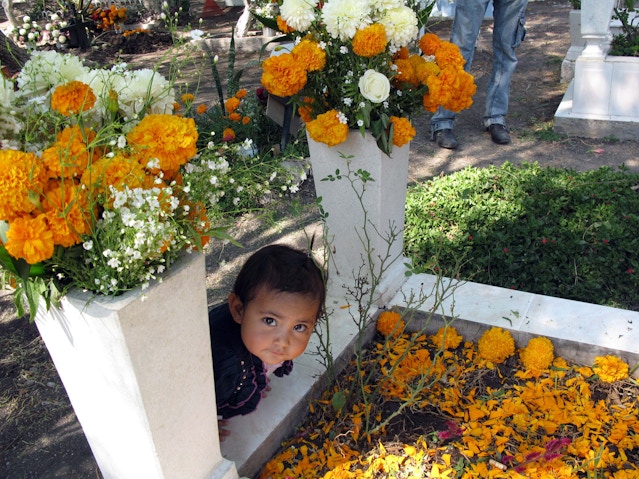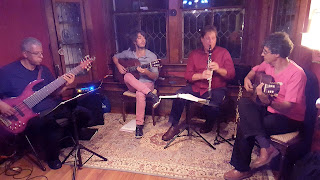It’s a soggy, warm one, a climate change Christmas in Washington, gray
and misty and oh so quiet. No racing cars on Park Road today, no noisy
neighbors or clamoring renovation projects; only the sound of a few birds
tweeting and crows cawing.
If I pretended, I
could convince myself I was in a cabin in the woods, a perfect place to write. Santa’s gift to me is this peace.
I have a goal, dear supporters, to get this Mexico manuscript sample to
you by the end of the year. Just around the corner, eek!
I’ve had a few
distractions, but good ones. Your encouragement has fueled a writing habit
that’s branched into other territory. I’ve re-discovered a book I started
writing back in 1998, and I’ve taken some spare time to breathe new life into
it. I’ve been playing with short-form too, some opinion pieces and personal
essays, submitting them to publications and inviting the rejections, which
often come in the form of silence. But this is part of the writing game I’m
playing, down on the field, getting banged around. And I’ve never been happier.
As Steven
Pressfield (http://www.stevenpressfield.com), author of The War of Art, says, when you beat Resistance and do
The Work, even the blemishes on your face clear-up. (Or did I say that?)
To get to The Work
each day, I warm-up with a little free-writing. I got zinging one morning in
Ptwon about a holiday event I’d attended the night before.Then, that evening at
the public library, after I’d shut-down and packed-up to go home, I discovered
a gathering in the periodical room. A monthly meeting of the Writer’s Voice
Café, folks were sharing stories of their holidays. I had no holiday stories,
so I sat in the back and listened, until they’d run out of readers. I signed
their register and slipped out. But half-way down the block I remembered: I did
have something.
I ran back, and
they welcomed me eagerly, someone to fill the dead air. They helped me plugged-in
my computer so I could read from my screen, and they adjusted the goose-neck
microphone so I could reach.
Here is what I
shared (for adults only), this version a little prettied-up for submission.
Naughty
and Nice: The Cup of Generosity Runneth Over in Provincetown
On a
recent off-season sojourn in Provincetown, a fingertip of land at the end of
the hand at the end of the arm of Cape Cod, after weeks of solitary writing, I
happened upon The Kook, a gathering of the townies at Grotto Bar. Underground,
with special guests Penny Champayne and Whitney Houston (aka Qya Cristal),
sprightly elves danced, baring cheeky cheeks, the club mix thumped, and Santa’s
Helpers offered-up tits-for-tots shooters between bountiful bosoms.
I felt like a voyeur on the fringe, DC product that I am, sipping
my Dark and Stormy, too timid to dive in to the marshmallow folds. I saw that
it took some skill, a team effort, the receiver bending on one knee as the
titty teapot tipped forward. Good to the last drop, and sugary sweet, one
imbiber reported. All for a good cause.
That’s
what kept me out past my bedtime, gave me the excuse to partake in the first
place: the cause. Sure, you say. No, honestly, I insist. Though I didn’t
realize exactly what I was getting myself into when I got there, that the
entire contents of my wallet would be empty by the time I left.
In a
place know for the first Pilgrims’ landing, lighthouses and lobster, and fun in
the sun with the queens, queers and bears, I saw another side of Ptown. It was
the workers in the house, after their shifts, waiters and bartenders,
performers and artists, dropping fivers in the collection trough for a pink tit
shot, funding Santa wishes taped to the wall, ice skates for 10-year-old Vicky
and a Star Wars Lego set for 8-year-old Dan. These children of working class
families live in a place where locals have been priced right out of their own
market. Amidst a sea of posh seaside DINK retiree cottages, so called ‘tiny
houses’ selling for a mil, there’s just one low income housing project; and the
waiting list is reportedly a mile long.
The
event organizers, a gay couple in this for the 17th ‘straight’ year, were
vibrant at the helm. Scott Martino played the potty-mouthed elfin MC; and his
partner, a drag performer out of costume in blue jeans and Hawaiian shirt, sang
twisted Christmas tunes, thanking Ptown for supporting him through his career,
and matching the contents of the collection trough after each round. Their
generosity and resourcefulness was like something out of the Peace Corps play
book: 'Do what you can with what got where you are.'
These
people were doing plenty. As a returned Peace Corps volunteer (Mexico 2010-12),
I know how hard it can be to rally the community. As an out-of-towner, I was
delighted to participate, stuffing my bills in the till, and a big one after
Streisand’s lip-sync of jah-jah-jah-jah-jingle bells.
Oh
what fun! Generosity is alive and well in Provincetown. And those lucky kids
will have presents under the tree this Christmas.














